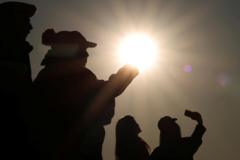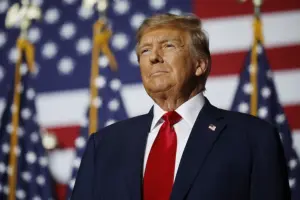The contentious case at the Supreme Court could have significant implications for the platform’s future in the U.S., affecting millions of users amid political maneuvering and national security debates.
**Supreme Court Set to Hear TikTok's Challenge Against U.S. Ban**

**Supreme Court Set to Hear TikTok's Challenge Against U.S. Ban**
TikTok's legal fight against a potential American ban focuses on balancing national security with free speech rights as it faces scrutiny from the government.
TikTok is preparing for a crucial hearing at the U.S. Supreme Court scheduled for Friday, where it will push back against a law aimed at prohibiting its operation unless it separates from its Chinese parent company, ByteDance. This case stands at the intersection of national security concerns and the defense of free speech rights, impacting around 170 million American users of the app.
The U.S. government contends that TikTok poses a significant risk of being exploited by the Chinese government for espionage and political influence. The law, passed with bipartisan support last year, requires TikTok to either divest from its Chinese ownership or be banned from the country by January 19. TikTok has consistently refuted these accusations, claiming the enforcement of the law infringes on the free speech rights protected under the First Amendment.
Speculation abounds regarding the Supreme Court’s decision, especially after President-elect Donald Trump’s recent involvement. He has called for a delay in the law’s enforcement, allowing his administration to negotiate a possible resolution. Legal experts suggest that while the Supreme Court typically favors the government's position in such cases, the unusual political context surrounding the case may play a role in its outcome.
The law would not outright ban TikTok; rather, it would effectively terminate its presence in the American market by preventing tech firms like Apple and Google from offering updates or downloads of the app. TikTok’s reputation has already deteriorated in several countries, with the app being entirely prohibited in India and restricted on government devices in nations including the United Kingdom.
Critics of the ban highlight the potential negative ramifications on free speech. Some TikTok users have lodged their legal challenges, stating that targeting the app due to its influence on public opinion directly opposes constitutional freedoms. Organizations such as the American Civil Liberties Union have also weighed in, asserting that the government has not demonstrated credible evidence justifying the severe implications of the ban.
Proponents of the ban argue that the security interests at stake necessitate stringent measures against TikTok to mitigate potential national security risks stemming from its Chinese ownership. Critics endorse the view that the conflict fundamentally concerns the role of the Chinese government in influencing domestic internet firms, showcasing a broader geopolitical tension.
Should the Supreme Court issue its ruling soon, the outcome could effectively shape TikTok’s future in the U.S. and establish a legal precedent regarding the balance between securing national interests and preserving individual freedoms in the context of technology and social media.
The U.S. government contends that TikTok poses a significant risk of being exploited by the Chinese government for espionage and political influence. The law, passed with bipartisan support last year, requires TikTok to either divest from its Chinese ownership or be banned from the country by January 19. TikTok has consistently refuted these accusations, claiming the enforcement of the law infringes on the free speech rights protected under the First Amendment.
Speculation abounds regarding the Supreme Court’s decision, especially after President-elect Donald Trump’s recent involvement. He has called for a delay in the law’s enforcement, allowing his administration to negotiate a possible resolution. Legal experts suggest that while the Supreme Court typically favors the government's position in such cases, the unusual political context surrounding the case may play a role in its outcome.
The law would not outright ban TikTok; rather, it would effectively terminate its presence in the American market by preventing tech firms like Apple and Google from offering updates or downloads of the app. TikTok’s reputation has already deteriorated in several countries, with the app being entirely prohibited in India and restricted on government devices in nations including the United Kingdom.
Critics of the ban highlight the potential negative ramifications on free speech. Some TikTok users have lodged their legal challenges, stating that targeting the app due to its influence on public opinion directly opposes constitutional freedoms. Organizations such as the American Civil Liberties Union have also weighed in, asserting that the government has not demonstrated credible evidence justifying the severe implications of the ban.
Proponents of the ban argue that the security interests at stake necessitate stringent measures against TikTok to mitigate potential national security risks stemming from its Chinese ownership. Critics endorse the view that the conflict fundamentally concerns the role of the Chinese government in influencing domestic internet firms, showcasing a broader geopolitical tension.
Should the Supreme Court issue its ruling soon, the outcome could effectively shape TikTok’s future in the U.S. and establish a legal precedent regarding the balance between securing national interests and preserving individual freedoms in the context of technology and social media.




















